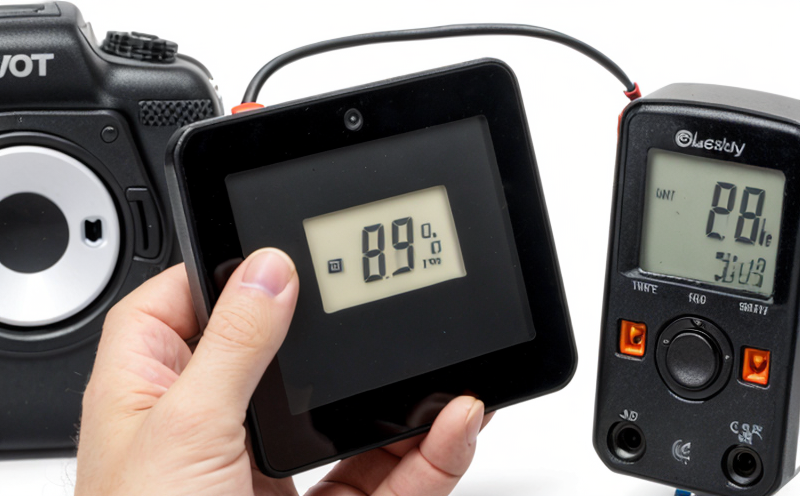Mechanical Strength Testing of Electronics Casings
The mechanical strength testing of electronics casings is an essential process that ensures consumer products meet safety standards and perform reliably under various environmental conditions. This test evaluates the resistance of electronic casings to forces such as compression, tension, shear, impact, and bending. The integrity of these casings directly impacts product durability, user safety, and compliance with international regulations.
Consumer electronics are subjected to a range of stresses during manufacturing, shipping, installation, use, and even accidental drops or impacts. Ensuring that the casing withstands these forces without compromising the internal components is critical for maintaining product integrity and preventing potential hazards. This testing methodology aligns with international standards such as IEC 60950-1 and UL 60950-1, which outline requirements for safety in information technology equipment.
The test setup involves subjecting a representative specimen of the electronic casing to specified loads or forces. The specimen is typically prepared by removing any non-structural components and cleaning it to ensure accurate measurement. The testing process can simulate real-world conditions, such as being dropped from a height or subjected to vibrations.
Key factors in this test include the type of force applied (compression, tension, shear), the rate at which forces are applied, and the duration of the application. For instance, when simulating a drop scenario, the angle and height from which the casing is dropped can vary based on the product's expected usage conditions. The apparatus used for this test includes specialized machines capable of applying controlled loads to the specimen in a consistent manner.
The results are analyzed to determine if the casing meets specified criteria for deformation, failure point, or overall strength. Compliance with these standards is crucial for ensuring that products do not pose risks to users and meet market expectations for quality and safety.
Why Choose This Test
Mechanical strength testing of electronics casings offers several advantages, making it an indispensable part of the product development and compliance process. By conducting this test, manufacturers can identify potential weaknesses in their designs early on, allowing for necessary modifications to enhance safety and durability.
- Enhanced Product Safety: Ensures that casings do not break or deform under typical usage conditions, reducing the risk of product failure and associated hazards.
- Informed Design Decisions: Provides valuable insights into the performance of different materials and designs, guiding engineers in selecting optimal solutions for their products.
- Compliance Assurance: Helps manufacturers meet regulatory requirements and international standards like IEC 60950-1 and UL 60950-1, ensuring that products are safe for global markets.
- Cost Savings: By identifying issues early in the development process, mechanical strength testing can prevent costly rework or product recalls later on.
Ultimately, this test contributes to building a safer and more reliable consumer electronics industry. It is a critical step for quality managers, compliance officers, R&D engineers, and procurement teams looking to ensure their products meet the highest standards of safety and performance.
International Acceptance and Recognition
Mechanical strength testing of electronics casings is widely recognized and accepted across various international standards. These include IEC 60950-1, which sets out the safety requirements for information technology equipment, and UL 60950-1, a similar standard used in North America. Compliance with these standards ensures that products are safe and reliable under various conditions.
Many countries have adopted or referenced these international standards in their national regulations, making compliance essential for global market entry. For instance, the European Union's Low Voltage Directive (LVD) 2014/35/EU mandates compliance with IEC standards to ensure product safety and compatibility within EU markets.
Recognizing the importance of mechanical strength testing, regulatory bodies such as Underwriters Laboratories (UL), Intertek, and TÜV provide accredited laboratories that offer these services. These organizations ensure consistent testing practices and results across different regions, enhancing trust in the testing process.
The acceptance of this test is further bolstered by its role in reducing product liability risks for manufacturers. By ensuring compliance with recognized standards, companies can mitigate potential legal issues associated with product safety concerns.
Use Cases and Application Examples
- Laptop Computers: Ensuring that the casing of a laptop is robust enough to withstand accidental drops from typical user heights.
- Smartphones: Evaluating how well the casing can protect the internal components during various impact scenarios, such as being dropped or subjected to vibrations.
- Tablet Devices: Simulating real-world conditions like being placed on hard surfaces and then experiencing a sharp impact from an object.
- Medical Electronics: Testing the strength of casings used in medical devices to ensure they can withstand rigorous sterilization processes without compromising internal components.
- IoT Devices: Assessing how well the casing can protect against environmental factors like humidity and temperature changes, which are common during shipping and installation.
In addition to these examples, mechanical strength testing is crucial for any consumer electronics product where durability and safety are paramount. The test results help manufacturers identify areas for improvement, ensuring that their products not only meet but exceed industry standards.





